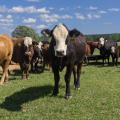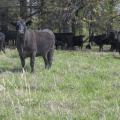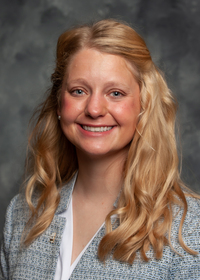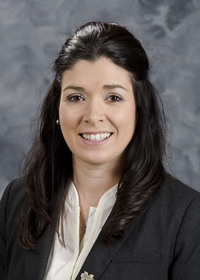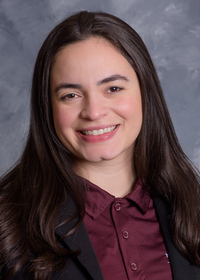South MS Forage Bull Test
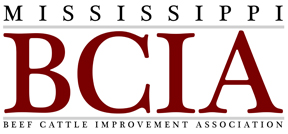
South Mississippi Gain on Forage Bull Test
The primary purpose of the South Mississippi Gain-On-Forage Bull Test is to provide productive educational opportunities for beef cattle producers throughout the Southeastern United States. This educational process is grounded in the bull performance test – an official venue through which beef cattle breeders can evaluate several performance parameters of young bulls for utilization in making informed breeding management decisions. Information collected during each 168-day test is very valuable in helping producers evaluate the utility of their breeding programs and the genetic merit of their foundation breeding stock. Additionally, this test serves as a marketing tool for cattle breeders to sell eligible bulls via private treaty transactions and as a source from which commercial beef cattle producers throughout the region can locate and acquire genetically superior, high quality, forage-tested herd sires.
|
OCTOBER
|
|
|
15
|
Nomination forms due for Gain on Forage Bull Test |
|
28
|
1:00 – 3:00 p.m. Bull Delivery with required documentation |
| 31 | Place bulls on cool season forage pasture |
|
NOVEMBER
|
|
|
18
|
Beginning of Gain on Forage Bull Test, Ultrasound date for early born bulls |
|
JANUARY
|
|
|
13
|
Weigh, process, & collect data on bulls. Deadline to |
|
FEBRUARY
|
|
|
26
|
Deadline to submit completed barn sheets for bulls |
|
MARCH
|
|
|
10
|
Weigh and process bulls to collect data. 2nd Ultrasound Date, later born bulls |
|
MAY
|
|
|
5
|
Weigh and process bulls to collect data and mark end of official test (test will be a minimum of 168 days) |
|
20
|
Mississippi/Louisiana Beef and Forage Field Day |
Publications
News
RAYMOND, Miss. -- Beef cattle prices are the best they have been in nearly a decade for Mississippi’s producers, but they face some tough management challenges to ensure their operations are profitable.
RAYMOND, Miss. -- Small ruminants are a popular choice for people like J.T. Crownover who want to get into the livestock business but do not want to raise cattle. Crownover attended the Central Mississippi Research and Extension Center’s Producer Advisory Council meeting Feb. 20. The forum, where agricultural producers can discuss their needs with MSU administrators, researchers, specialists and Extension agents, was the catalyst for the university’s active small ruminant program.
Mississippi cattle operations must constantly improve efficiency to remain profitable, as rising production costs are decreasing the benefit of high market prices. Brandi Karisch, beef specialist with the Mississippi State University Extension Service, said beef production is a significant component of the state’s agricultural economy, with a total estimated value of $318 million in 2022.


